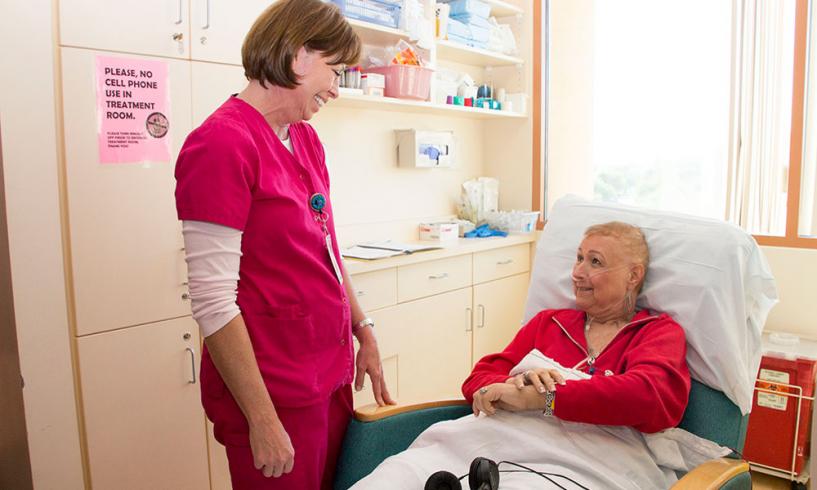Jessica is preparing discharge teaching for Marty, a 63-year-old woman with stage IIIB high-grade serous ovarian cancer.
Marty is three days post-total abdominal hysterectomy with debulking surgery. Her husband and daughters have been visiting her on the surgical/oncology unit and are present for discharge teaching. The medical oncologist is recommending adjuvant treatment with carboplatin and paclitaxel. During the discussion, Marty asks Jessica why such harsh treatment is being recommended when targeted therapies can kill cancer without destroying the immune system and causing any severe side effects.
What Would You Do?
Jessica knows that according to the National Comprehensive Cancer Network guidelines, paclitaxel with either carboplatin or cisplatin is the standard of care for chemotherapy in the first-line setting for patients with stage III ovarian cancer. The only targeted therapy recommended by the NCCN in the frontline setting for ovarian cancer is bevacizumab.
Jessica assesses Marty’s understanding of targeted therapy. Marty says she has been hearing a lot in the news about cancer treatments that only kill the cancer cells and hands Jessica a stack of information from the Internet talking about new developments in ovarian cancer.
A starting point to educating patients and families is for the oncology nurse to understand the perceptions of the patient or family. In this case, Marty has misperceptions regarding how treatment decisions are made, the side effects of anticancer therapies, and the use of targeted therapies in ovarian cancer.
Jessica explains how oncologists make treatment decisions based on the NCCN guidelines and how those guidelines are developed. She also discusses how targeted therapies work by attacking one of the ways cancer uses to grow. She explains how bevacizumab slows cancer growth by inhibiting new blood vessel development. Jessica clarifies the fact that even targeted and immunotherapies can have significant side effects. She takes the time to ask Marty which chemotherapy side effects she is most concerned about. Marty says she is afraid she will be incapacitated with vomiting and “shrink away like my mother did.”
After explaining available IV and oral antinausea medications, Jessica assures Marty and her family that they will have the opportunity to speak with the oncologist before any treatment is started and encourages them to ask about potential participation in a clinical trial. By addressing the patient’s and family’s misperceptions and greatest concerns, Jessica is able to help relieve some of their fears about the recommended chemotherapy.






